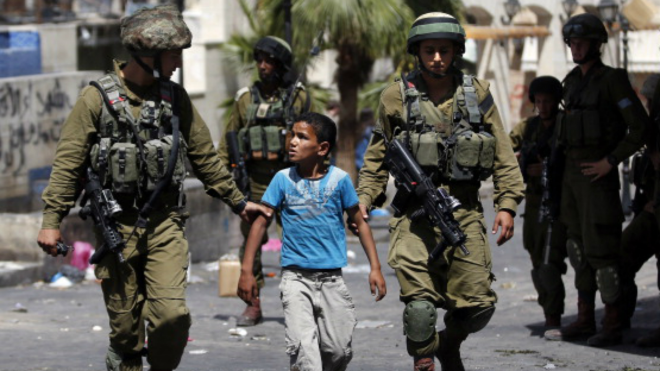Israel’s Knesset recently passed a highly contentious law allowing for the imprisonment of Palestinian minors under the age of 14 if they are involved in acts deemed as terrorism. The law was passed by Israel with a vote of 55 to 33, has ignited widespread debate, raising serious concerns over the treatment of children under international human rights law.
What Does the Law Entail?
The new legislation targets minors aged 12 to 14, allowing Israeli courts to sentence them to prison for acts such as murder, terrorism, or other violent actions. The law specifically focuses on minors who are considered to be a “danger” to society. If found guilty of serious offenses, these minors could be detained until they reach 14, at which point they may be transferred to adult facilities. The move is viewed as a significant shift in Israel’s treatment of Palestinian children involved in violence, allowing the state to hold them in secure facilities rather than offering rehabilitation options.
Proponents of the law argue that it is necessary to prevent terrorism and protect the state’s security. They cite examples of young Palestinians allegedly involved in violent attacks, particularly during the recent escalation of violence in Jerusalem and the West Bank, as justification for harsher measures. For instance, a 13-year-old was recently involved in a shooting incident in the City of David, a historical site in Jerusalem, underscoring the concerns that prompted the law’s passage.
International Criticism and Human Rights Concerns
However, the law has sparked immediate condemnation from various international human rights organizations. Critics argue that the legislation violates the United Nations Convention on the Rights of the Child, which Israel ratified in 1991. The convention mandates that children should not be subjected to detention unless absolutely necessary, and that any such detention should be a last resort. The UN has consistently opposed the incarceration of children under such harsh conditions, and this new law directly contradicts these principles.
Human rights groups such as Human Rights Watch and Amnesty International have expressed alarm over the potential for abuse and the lack of rehabilitative programs for detained children. Many argue that the law disregards the psychological and emotional development of minors, especially in conflict zones like Palestine, where children are often caught in the crossfire of broader political struggles. The legal framework raises questions about the fairness of trials and the conditions under which Palestinian minors would be held in Israeli detention centers.
Is This Law a Step Toward Further Divisions?
The law is also likely to deepen divisions between Israeli and Palestinian communities. As tensions in the region remain high, measures like this could further fuel resentment and mistrust. Palestinian leaders have denounced the legislation as part of a broader effort by Israel to assert control over the occupied territories and to punish Palestinian youth for their involvement in protests and violence. The law may exacerbate feelings of injustice among Palestinians, particularly those who feel that they are treated unfairly by the Israeli judicial system.
The international community is now watching closely as Israel moves to implement this controversial legislation. Human rights organizations are expected to challenge the law in courts, but Israel’s government remains steadfast in its stance, arguing that national security justifies the actions taken.
Could This Lead to a Backlash?
While the law has received support from certain Israeli factions, its broader implications for international relations remain unclear. Could this move worsen Israel’s already strained relationships with Palestinian leaders and international bodies? And how will it affect the prospects for peace in the region? These are the questions that many are asking as the situation continues to develop.
Related Stories:
Turkish President Erdogan urges OIC to Stop Israeli Aggression
UK Imposes Sanctions on Israeli Settlers for Human Rights Abuses Against Palestinians
U.S. to continue arms transfers to Israel despite ‘dire’ Gaza humanitarian crisis
















